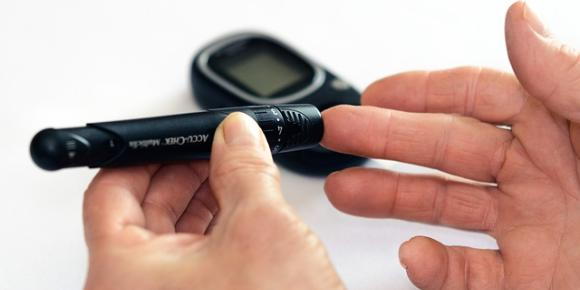
More than 29 million people in the United States are living with diabetes. 86 million Americans—more than one out of three—have prediabetes, and vision problems are one of the foremost complications accompanying this disease.
It is important to know what those problems are and, most importantly, how you can delay diabetes from taking hold.
Diabetes And Its Impact On Vision
Currently, diabetes is the leading cause of blindness in adults. The most common eye diseases caused by diabetes are retinopathy, glaucoma and cataracts. Here are the facts:
Diabetic retinopathy accounts for 12 percent of all new cases of blindness in the U.S.
Once a person is diagnosed with diabetes, they are 40 percent more likely to develop glaucoma.
A person with diabetes is 60 percent more likely to develop cataracts.
What Is Prediabetes?
Prediabetes is a condition in which a person’s blood glucose levels are higher than normal but aren’t yet high enough for a diagnosis of diabetes.
Studies show that nearly eight percent of people develop diabetic retinopathy during the prediabetic stage, before they have been officially diagnosed with diabetes. Blurred vision is also a prominent symptom of prediabetes. If you are experiencing vision changes, get your blood sugar levels tested, as many people with prediabetes are already suffering complications from diabetes.
(Statistics in the video are from 2010 studies.)
What Can You Do?
Diet and lifestyle changes can delay, if not entirely prevent diabetes from fully taking hold—especially during the pre-diabetic phase. Here are some things you can do to slow the onset of diabetes:
Eat healthy foods. Increase fruit and vegetable intake and decrease fat and calorie intake.
Incorporate physical activity into your daily routine. Exercise helps muscle cells use blood glucose for energy by making the cells more sensitive to insulin.
Maintain a healthy weight. Even if you only lose five to seven percent of your weight, you can prevent or delay diabetes by 60 percent.
These simple lifestyle changes can delay the diagnosis of diabetes by three to 10 years!
Help Us Promote A Healthy Lifestyle
Without making changes to improve their health, 15 to 30 percent of prediabetics will develop type 2 diabetes within five years. It is more than just your eye health that concerns us. As your trusted optometry practice, we care about every aspect of your health. By raising awareness about prediabetes and diabetes, we can encourage each other to promote healthy lifestyles that will help protect us and our loved ones from the damaging effects of this disease.
Thank you for reading our blog and for being a valued patient and friend!
Top image by Flickr user Peter McConnochie used under Creative Commons Attribution-Sharealike 4.0 license. Image cropped and modified from original.
The content on this blog is not intended to be a substitute for professional medical advice, diagnosis, or treatment. Always seek the advice of qualified health providers with questions you may have regarding medical conditions.




